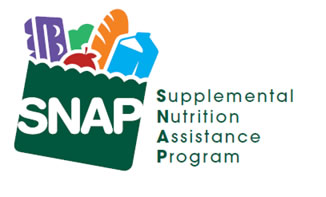
In late January, US District Judge Mark Walker struck down Florida’s rules for restoring the voting rights of former convicts, finding those rules not just unconstitutional (on First and Fourteenth Amendment grounds) but “nonsensical.”
Why nonsensical? Because “disenfranchised citizens must kowtow before a panel of high-level government officials over which Florida’s governor has absolute veto authority. ”
If a panel of appointed bureaucrats (or the governor) doesn’t like you, you don’t get to vote. Maybe they don’t believe you’ve truly “reformed.” Maybe they don’t like your perceived partisan affiliation. Maybe they just don’t like your skin color.
In fact, the system would be “nonsensical” even if it didn’t leave the decision in the hands of partisan hacks. If the Declaration of Independence is to be taken even a little bit seriously, that system is completely out of line with American values.
Only four states (Florida, Iowa, Kentucky, and Virginia) fail to automatically restore the vote to convicts at the ends of their sentences. Maine, Vermont, and the US territory of Puerto Rico don’t just restore voting rights at end of sentence — they allow prisoners to vote.
The Declaration of Independence lays out a clear bottom line standard for the legitimacy of government: The consent of the governed.
We could argue about what consent really means, but where democracy is the form of government, the vote is traditionally deemed the instrument of that consent, and in America expanding the franchise — to former slaves, then to women, then to all citizens down to the age of 18 — has been the trend for 150 years.
Prisoners are certainly “governed,” and to a far greater degree than most of us. They live in cages. They’re told when to get up, when to go to sleep, and what to do in between, with draconian punishments for disobedience. Once their sentences are completed, they’ve supposedly “paid their debt to society” (would that our justice system emphasized restitution to real victims rather than the myth that “society” is or can be owed anything, but that’s a subject for another column). On what grounds can former — or, for that matter, current — be legitimately forbidden the vote if “consent of the governed” is truly the standard and the vote is truly its expression?
Florida’s existing voters will have an opportunity this November to pass a constitutional amendment ending their state’s “nonsensical” system and restoring voting rights automatically to felons who complete their sentences.
That’s a good first step.
Next, how about a federal voting rights suit on behalf of all those who are governed but forbidden the legal ability to supposedly consent?
And, finally, how about a dramatic reduction in the scope and severity of government power that we supposedly consent TO?
Thomas L. Knapp (Twitter: @thomaslknapp) is director and senior news analyst at the William Lloyd Garrison Center for Libertarian Advocacy Journalism (thegarrisoncenter.org). He lives and works in north central Florida.
PUBLICATION/CITATION HISTORY
- “No voting rights for felons: Unfair, anti-Democratic, and, yes, ‘nonsensical,'” by Thomas L. Knapp, WInchester Tennessee Herald Chronicle, 02/12/18
- “No Voting Rights for Felons: Unfair, Anti-Democratic, and, Yes, ‘Nonsensical,'” by Thomas L. Knapp, CounterPunch, 02/13/18
- “Why not allow felons to vote?” by Thomas L. Knapp, Wilson, North Carolina Times, 02/13/18
- “No voting rights for felons: Unfair, anti-democratic, and, yes, ‘nonsensical,'” by Thomas L. Knapp, Sonoran News [Arizona], 02/14/18
- “No Voting Rights for Felons: Unfair, Anti- Democratic, and, Yes, ‘Nonsensical,'” by Thomas L. Knapp, Columbia, South Carolina Panorama, [web and print editions], 02/15/18
- “No Voting Rights for Felons: Unfair, Anti-Democratic, and, Yes, ‘Nonsensical,'” by Thomas L. Knapp, Ventura, California Citizens Journal, 02/15/18
- “Restrict voting rights to American taxpayers,” by Ashley Robbins, Wilson, North Carolina Times, 02/16/18


